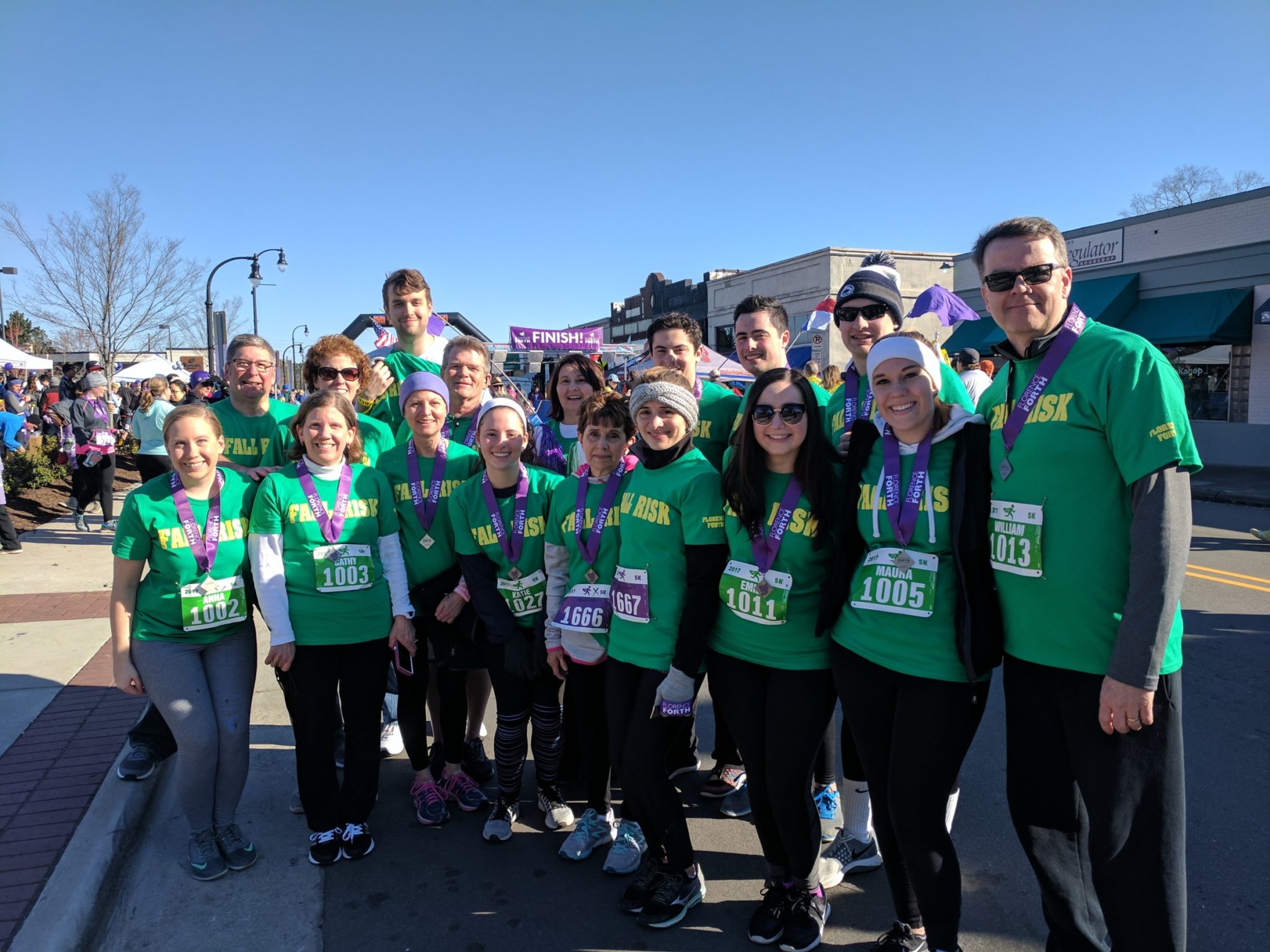Giving Back on Giving Tuesday
December 3, 2019

When I was diagnosed with anti-NMDA receptor encephalitis in 2010, I didn’t understand what that meant – and not just because I had a brain disease. My symptoms, ranging from paranoia and mania to the inability to walk or use my hands, seizures, and no longer being able to read or follow conversations, varied so widely that it was confusing and isolating.
If I, the patient, didn’t fully have a grasp on this disease and what it was, how could my friends or family ever understand?
I know how lucky I am to have such a large support group – including a best friend who visited me in the psych ward when we were both just 19 and I was first misdiagnosed with psychosis unknown. And when I was eventually transferred to the University of Pennsylvania and receiving treatment for AE, family members crowded into my cramped hospital room to offer support, flowers, and immeasurable love.
 My parents and I were certainly not alone during this time – but it felt like we were. The complicated name, the scary symptoms, and the fact that I had lost a lot of myself and my personality did not exactly make autoimmune encephalitis a relatable illness. We didn’t have the tools to describe to everyone what was happening to me, and while I am forever grateful for my friends’ and family’s support, I still felt alone.
My parents and I were certainly not alone during this time – but it felt like we were. The complicated name, the scary symptoms, and the fact that I had lost a lot of myself and my personality did not exactly make autoimmune encephalitis a relatable illness. We didn’t have the tools to describe to everyone what was happening to me, and while I am forever grateful for my friends’ and family’s support, I still felt alone.
It wasn’t until I met a fellow patient, Susannah Cahalan, a few months later that I felt like someone truly “got it.” I wasn’t alone anymore. There was a person standing in front of me who understood. It was like being part of a secret club I never asked for, but I was thrilled to finally meet another member. I think we hugged for a full five minutes.
 Susannah also introduced me to the Autoimmune Encephalitis Alliance. The AE Alliance works to educate physicians, provide patient support, and facilitate research towards a cure for AE.
Susannah also introduced me to the Autoimmune Encephalitis Alliance. The AE Alliance works to educate physicians, provide patient support, and facilitate research towards a cure for AE.
The educational and patient support resources that the Alliance provides for families would have been invaluable to us when I was diagnosed. Imagine (or maybe you have experienced this) being twenty years old, going back to college after a somewhat mysterious medical absence, and trying to explain to professors and friends that your body attacked your brain. I’m from a small town in Pennsylvania where ten years ago no one, including the neurologists and psychiatrists I saw, had heard of autoimmune encephalitis.
The AE Alliance also brings together an incredible and ever-growing community of patients and families at the Florence Forth Road Race. These survivors share their stories over some delicious Carolina barbecue at the patient and family luncheon. The AE Alliance develops more programming at the race each year to connect people in the name of both community and education. I know that AE can be isolating, and I go back year after year to connect with fellow patients who understand what I went through and learn about new developments in the treatment of AE. It’s a warm community full of hope and mutual understanding.
 I support the AE Alliance because I wish these resources were available to my family ten years ago and because I value the relationships I have built with fellow survivors at the Florence Forth Race. Even if you can’t walk or run in the race, you can participate in Florence Forth by creating a fundraising team. I’ll be launching my own team fundraiser for Giving Tuesday. It’s a great way to celebrate this season and support the AE Alliance at the same time.
I support the AE Alliance because I wish these resources were available to my family ten years ago and because I value the relationships I have built with fellow survivors at the Florence Forth Race. Even if you can’t walk or run in the race, you can participate in Florence Forth by creating a fundraising team. I’ll be launching my own team fundraiser for Giving Tuesday. It’s a great way to celebrate this season and support the AE Alliance at the same time.
By Emily Gavigan